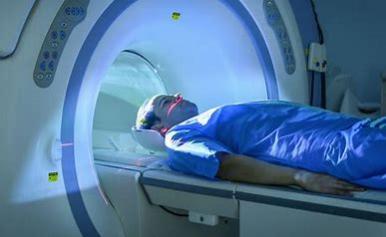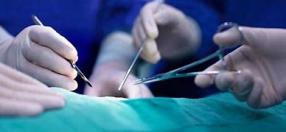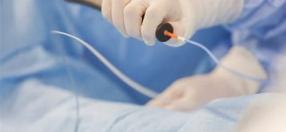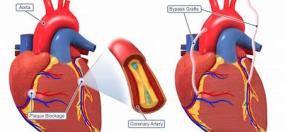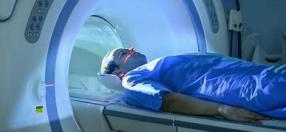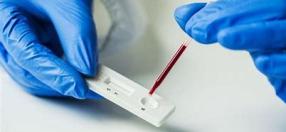Gastric fluid analysis
gastric fluid analysis, medical procedure used to examine the secretions and other liquid substances occurring in the stomach. By means of a tube passed through the nose and into the stomach, gastric fluid can be obtained from the stomach. The most common reason for this test is to look for blood in the upper gastrointestinal tract. Gastric fluid also can be cultured to test for tuberculosis if an adequate sputum sample cannot be obtained for culture.gastric fluid analysis, medical procedure used to examine the secretions and other liquid substances occurring in the stomach. By means of a tube passed through the nose and into the stomach, gastric fluid can be obtained from the stomach. The most common reason for this test is to look for blood in the upper gastrointestinal tract. Gastric fluid also can be cultured to test for tuberculosis if an adequate sputum sample cannot be obtained for culture.
=
-
gastric fluid
gastric fluid analysis, medical procedure used to examine the secretions and other liquid substances occurring in the stomach. By means of a tube passed through the nose and into the stomach, gastric fluid can be obtained from the stomach. The most common reason for this test is to look for blood in the upper gastrointestinal tract. Gastric fluid also can be cultured to test for tuberculosis if an adequate sputum sample cannot be obtained for culture.
-
thyroid function
thyroid function test, any laboratory procedure that assesses the production of the two active thyroid hormones, thyroxine (T4) and triiodothyronine (T3), by the thyroid gland and the production of thyrotropin (thyroid-stimulating hormone, TSH), the hormone that regulates thyroid secretion, by the pituitary gland. The best and most widely used tests are measurements of serum thyrotropin and thyroxine. The secretion of thyrotropin changes substantially in response to very small changes in thyroxine and triiodothyronine production. For example, small decreases in thyroid hormone production result in relatively large increases in serum concentrations of thyrotropin, and, conversely, small increases in thyroxine and triiodothyronine production result in relatively large decreases in serum concentrations of thyrotropin. Therefore, patients with hypothyroidism (thyroid deficiency) almost invariably have not only low serum thyroid hormone but also high serum thyrotropin concentrations, and those with hyperthyroidism have high serum thyroid hormone and low serum thyrotropin concentrations. An exception is patients with pituitary disease and thyrotropin deficiency, who have low serum thyroid hormone but normal or low serum thyrotropin concentrations. Between the two thyroid hormones, measurements of serum thyroxine are preferred because serum triiodothyronine concentrations are abnormal in many patients with nonthyroid illnesses.
-
estrogen.
Thyroxine and triiodothyronine exist in serum in two forms, bound and free (or unbound). Over 99 percent of each hormone is bound to one of three proteins—thyroxine-binding globulin, transthyretin (also known as thyroxine-binding prealbumin), and albumin. Serum thyroxine (and triiodothyronine) can be measured as the total hormone, which includes the bound and free fractions, or as free hormone alone. Changes in serum concentrations of these binding proteins occur, with the most common change being an increase in serum thyroxine-binding globulin in pregnant women and women taking estrogen. On the other hand, androgenic hormones and many illnesses decrease production of the binding proteins. These changes alter serum total thyroxine concentrations but not serum free thyroxine concentrations (and, similarly, total and free triiodothyronine concentrations). Thyroid hormone entry into tissues, and therefore hyperthyroidism or hypothyroidism, is correlated with serum free thyroxine and free triiodothyronine concentrations, not serum total thyroxine and total triiodothyronine concentrations. Therefore, measurements of serum free thyroxine are a better test for thyroid dysfunction than are measurements of serum total thyroxine.





